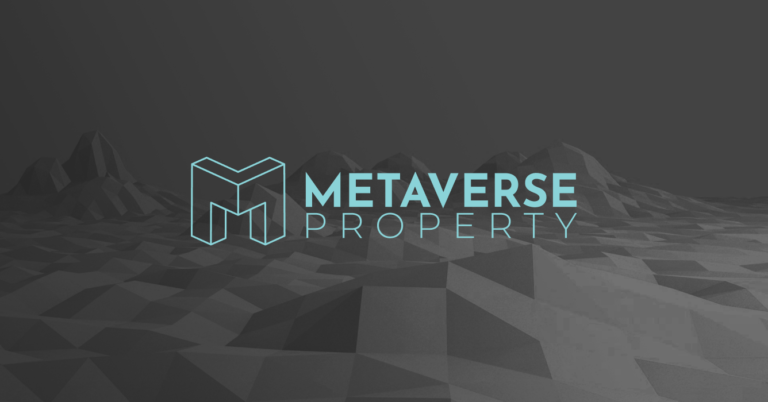Welcome to Part 5 of our in-depth research into the metaverse!
This report series aims to delve into the metaverse through describing its capabilities, applications, and developments; explaining different, prominent implementations of the metaverse in the context of Decentraland, Somnium, The Sandbox, Cryptovoxels, and Upland; offering explanations for different virtual real-estate offerings in each of these metaverses and the process of buying/renting land in each; as well as an offering a description of companies that facilitate virtual real-estate offerings within the metaverse.
As you know, the metaverse refers to a collectively shared virtual space that arises through the convergence of virtual and augmented reality, as well as the internet. It’s often heralded as a burgeoning, next-generation iteration of the internet, consisting of universally existent/accessible, three-dimensional, shared virtual spaces residing within a larger virtual universe.
This report installation of the series will focus specifically on the metaverse implementation known as Upland: a novel NFT metaverse based on the EOS blockchain network which is mapped to the real world and is among the fastest-growing and most dynamic blockchain-based economies at present.
What is Upland Real Estate?
Upland is a novel NFT metaverse that is mapped to the real world where users can transact for properties mapped to real addresses. Users can build their dream properties, open virtual businesses, and earn USD or UPX coins (i.e., the platform’s native token) by selling NFT-based properties on an open marketplace. Like other metaverse implementations, community is a central aspect, with users able to easily interact and form friendships in a positive and diverse player community. Upland is built on the foundation of three primary pillars: business, entertainment, and community.
Upland landowners participating in the platform’s virtual beta can receive special rewards by completing sets of special property collections, partaking in a variety of daily live events and treasure hunts, and more.
As with traditional real estate as well as similar to other metaverse platforms, Upland users have the opportunity to monetize their experiences both virtually and in reality. For instance, users can begin by earning returns on properties and collecting fees from visitors, as well as by reselling their properties for higher prices than purchased (i.e., “flipping”) on the open marketplace. Moreover, users can create additional income streams by starting and operating one of the many burgeoning businesses in Upland.
How Does One Get Involved in Upland?
In relation to community, Upland users are able to socialize with others via the company’s Discord and Telegram, as well as soon in one of the Upland hang-out spaces such as virtual coffee shops. Users can also learn about a variety of best practices and strategies within the community via the vast swathe of content comprising Upland’s Contributor Network (UCN): a community of Upland users who are authors, publishers, streamers, designers, and entrepreneurs producing their own content, creations, and business ideas of various kinds.
Upland actively encourages and rewards UCN participation, and takes care to maintain the network through a selective application and vetting process to ensure that quality requirements are achieved. There are currently three active groups comprising UCN members: Broadcasters, Moderators, and Franchisees, with additional groups such as Ambassadors, Designers, and Entrepreneurs to be added soon. Further to the community aspect, Uplanders can collaborate to develop urban neighborhoods and construct new homes for themselves and other users. Upland provides a variety of different architectural builds that users can in turn add to their properties.
To facilitate much of this community interaction and engagement, Upland relies on social media platforms including Telegram (5861 members), Twitter (32.8K followers), Reddit (4K members), Medium (5.2K followers), and Discord (28,366 members); Upland’s Discord is the most active social media platform/mechanism by which community users can see what’s going on in the Upland universe, receive answers to a variety of basic/advanced questions, and more. Users can also follow-along regularly with Upland via the platform’s newsletter.
How Can You Invest In Upland Real Estate
Like other metaverse implementations and reality more broadly, property values within Upland are governed by a few key factors which are inclusive of some of the following:
- Urban versus rural areas
- Proximity to major cities/localities
- Property size
- Broader in-game macroeconomics
- Strategic use in treasure-hunting/completing collections
As alluded to previously, NFT-based property parcels within Upland are mapped to the real world, with corresponding addresses, sizes, and coordinates. Moreover, they are catalogued with unique color codes inclusive of Light Green, Dark Green, Gray, Light Blue, and Dark Blue. Users are capable of transacting for both previously owned and unowned (i.e., unminted) properties on the platform. Users communicate, negotiate, trade, and express their interest in buying and selling properties on the platform through prominent on-platform social media challenges such as Disord and Telegram.
There are many more details you need to understand to really *get* how Upland real estate works. Inside our latest report, you’ll find a full breakdown of the various forces guiding investments in Upland.
Special Note: This report was written in collaboration with GDA Capital.
